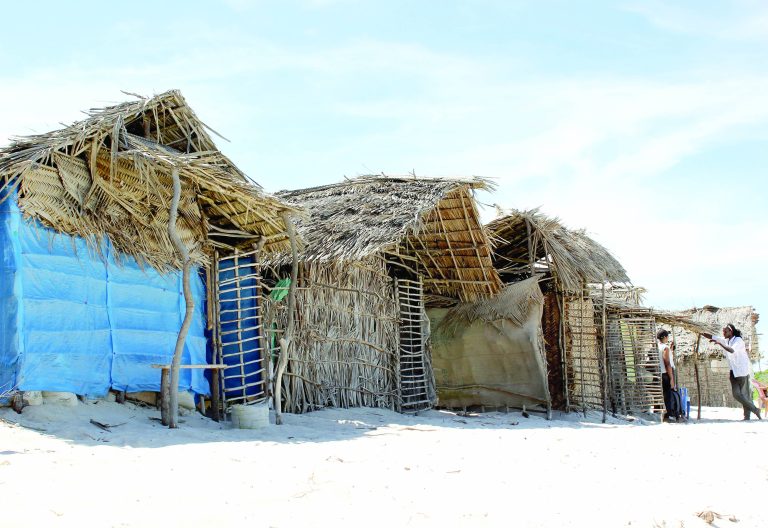Massage therapists in post-pandemic blues, high taxes

Once a thriving hub of relaxation and rejuvenation, Diani’s local massage industry in Kwale County now lies in near silence. Its tranquil rooms are empty, the scent of essential oils replaced by the barren sting of economic loss.
What was once a booming trade, usually driven by foreign tourists seeking luxury and wellness along Kenya’s southern coast, began to unravel in the wake of the COVID-19 pandemic.
As strict government restrictions halted international travel and health protocols tightened, massage parlours that dotted the idyllic shoreline were forced to shut down, leaving behind a trail of shuttered businesses, jobless therapists and dreams that dissolved with the tide.
Now, in the post-COVID era, Diani’s vibrant local massage industry is still struggling to rise from the impact of restrictions.
The golden days of booming business now live only in the memories of massage operators, like echoes from a distant, better time.
Today, a walk along Diani’s pristine shoreline reveals a trail of sun-beaten vibandas, humble massage huts that once bustled with foreign clients seeking coastal calm.
Many stand abandoned, weathered by the elements, mere shadows of their former selves.
In the few that remain open, owners sit idly, staring at the ocean, hoping against hope. Despite it being peak season, the expected flood of tourists is more like a trickle.
Those who do come often bypass local massage spots, a sharp contrast to the pre-pandemic days when such services were a key part of the Diani experience.
At Leisure Beach in Diani, we meet Esther Nyambura, 48, a local massage therapist whose face tells a story of frustration and fading hope.
Once proud of her craft, Nyambura now spends her days waiting, often in vain, for clients who no longer come.
She vividly recalls the golden days before the pandemic, when the industry was booming.
Forever gone
“We used to serve more than five clients a day, sometimes even more during high season,” she says, her voice tinged with nostalgia.
At the moment, Nyambura adds, she can go for almost two weeks without attending to a single customer. She says that they used to charge around Sh1,500 per client for two to three hours of massage, depending on the day’s demand.
It was decent money, enough to sustain her family and cover daily expenses.
Most of her clients were foreigners, particularly elderly tourists who valued the therapeutic sessions by the ocean. But when Covid-19 struck, everything changed.
“After the pandemic, I lost contact with many of my loyal clients. Most of them were older, and I fear many were taken by the wave of the virus. They never came back or even wrote,” she reveals.
According to her, currently, there are very few foreigners who go to the beach, and most of them are from a younger generation. Young people are not fond of getting massages and often spend time at the hotel or travelling to other places.
Kennedy Owuor, another massage therapist, blames the high taxes imposed by the government and strict airport restrictions are pushing tourists to opt for Tanzania instead of Kenya.
According to him, many of his friends in the tourism industry have called to bid him farewell, citing harassment and the high cost of services in Kenyan hotels.
“Nowadays, tourists are not allowed to bring goodies through the airport, which frustrates them. On top of that, hotel charges have gone up due to the rising cost of operations caused by increased taxation,” he says, adding that those who still visit Kenya tend to shorten their stay, unlike before when they would spend up to two weeks or more.
According to him, hotels also contribute to the decline of the local massage industry by discouraging tourists from seeking services outside their premises.
“Most hotels paint a negative picture of independent service providers, warning tourists against going outside due to alleged insecurity,” he says, expressing regret that the situation has taken a toll on their business, with some going for weeks without a single client.
Several of his colleagues have since stopped reporting to work altogether and are now seeking alternative sources of income, the 40-year-old says, oftentimes to avoid spending more on transport than what they actually earn by the end of the day.
Another massage therapist, Sara Wairimu, wears a face that betrays the fatigue of long hours and the weight of financial strain.
She is at pains to paint a picture of how they normally incur losses since they pay operation licences for both the national and county governments.
Her business is barely staying afloat because of what she calls an unfair business environment, since most hotels discourage tourists from going to local massage parlours, yet they all pay licences.
“I have to pay the county for a single business permit, and then the national government also requires me to pay for another kind of licence, including KRA. Then why would we be locked out of business,” she argues.
Unfair competition
Over the past four years, Wairimu had toyed with the idea of expanding her business.
Now, she’s simply trying to keep it afloat, holding on to hope that things will eventually get better.
She wants the government to step in and properly regulate beach operations, citing the presence of unlicensed operators who charge very low fees for massage services.
According to her, this creates unfair competition and undermines the quality of their work. Wairimu also wants the county government to support their businesses, noting that many of them have families to provide for.










